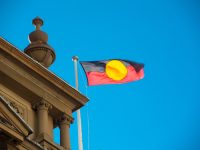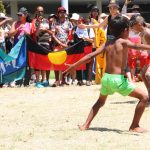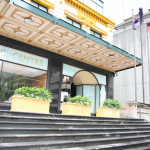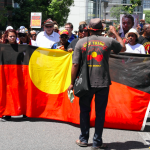Should NSW Have An Indigenous Court?

The NSW Bar Association of and Police Association are jointly calling upon the state government to provide funding for an Indigenous Court, with a view to reducing reoffending rates and the disproportionate number of First Peoples imprisoned in our state.
The bodies are pushing for the establishment of a new sentencing court, known as Walama Court, to address the specific needs of Indigenous people.
It would be based on Victoria’s Koori Court and the NSW Drug Court, which have both had great success in reducing reoffending through diversionary programs.
Indigenous Incarceration Rates: Australia’s Shame
Australia imprisons its Indigenous people at higher rates than any other developed country.
The Australian Bureau of Statistics reports that while Indigenous people make up just 2.8% of the population, 28% of prison inmates in NSW are Indigenous. Overall, Indigenous people are imprisoned at 13 times the national average.
The situation is even worse when it comes to young people. It was recently revealed that in the Northern Territory, all of those in youth detention are Aboriginal.
Nationally, 53% of young people in detention were Aboriginal or Torres Strait Islander in 2017. Indigenous youth aged 10 to 17 are 24 times as likely as non-Indigenous youth to be behind bars.
The figures are nothing short of staggering.
Support for change
A joint statement by the Associations reads:
“Our organisations believe that urgent action needs to be taken to address the spiralling rates of Indigenous incarceration… It is time for innovative solutions to be put in place that address the underlying causes of Indigenous offending and reoffending.”
Secretary of the Police Association, Pat Gooley, made it clear that police are firmly behind the proposal, having seen the ineffectiveness of the current approach.
“Police are sick of the rhetoric to gain political mileage. This is a genuine solution that will reduce the number of victims of crime and reduce the incidence of predominantly young men being incarcerated,” he stated.
“The social impact that incarceration has on Aboriginal families and communities is seen on the ground every day by the members of our police force.”
Diversion Rather than Incarceration
Last year, the Bar Association submitted that the sentencing process should take greater account of Indigenous history.
At the time, NSW Shadow Attorney General Paul Lynch explained that a designated Koori court would focus diversion rather than punishment, similar to the state’s Drug Court, with a view to reducing reoffending rates.
The model would also help address underlying issues that are endemic amongst Indigenous populations, such as alcohol and drug problems, lack of education and housing, and inadequate access to mental health programs.
Victorian Koori Court
Victorian Koori County Court judge-in-charge, Paul Grant, explains that more than 100 elders now work alongside judicial officials and court staff in that system, helping put offenders on the right path.
Instead of occurring in a formal court setting, the sentencing process occurs around a table where talks occur amongst the judge, offender, defence lawyer, elders and, in some cases, family members and support people.
“We witness strong responses to the guidance given by the elders,” Judge Grant says. “We see offenders in a significant number of cases respond to that direction and committing to try and change their lives.”
Effectiveness
In 2015, 48% of those sentenced to imprisonment in NSW reoffended within two year of their release.
The reoffending rates of those dealt with through the Drug Court program was more than a third (47%) less than this.
In light of similar yet early results from the NSW Koori Court Program in Parramatta, NSW Attorney General Mark Speakman announced this year that $2.7 million would be invested over the next three years to extend the program to a second location in Surry Hills.
This expansion came in the wake of early monitoring suggesting that most participants were working to better their lives by addressing drug addiction, accessing education and accepting safe accommodation.
The NSW Bar Association has pointed out that the cost of implementing the Koori Court Program pales in comparison with the economic and social costs of incarcerating Indigenous people.







